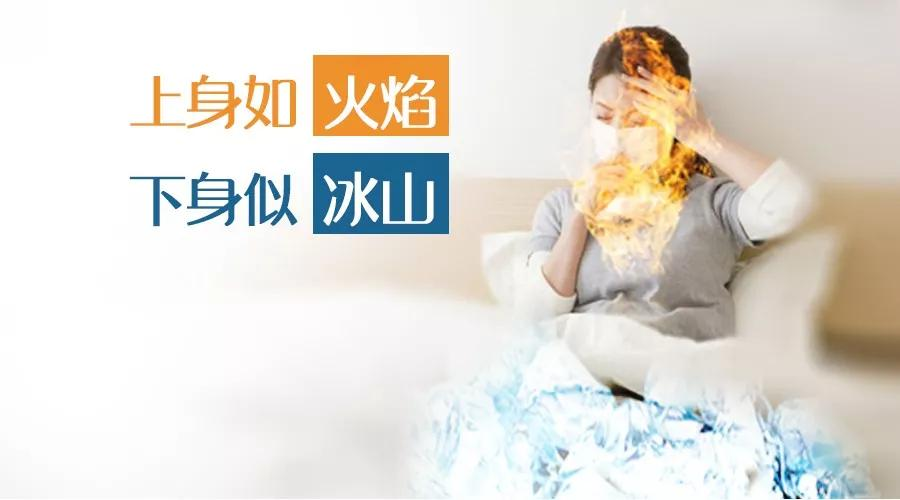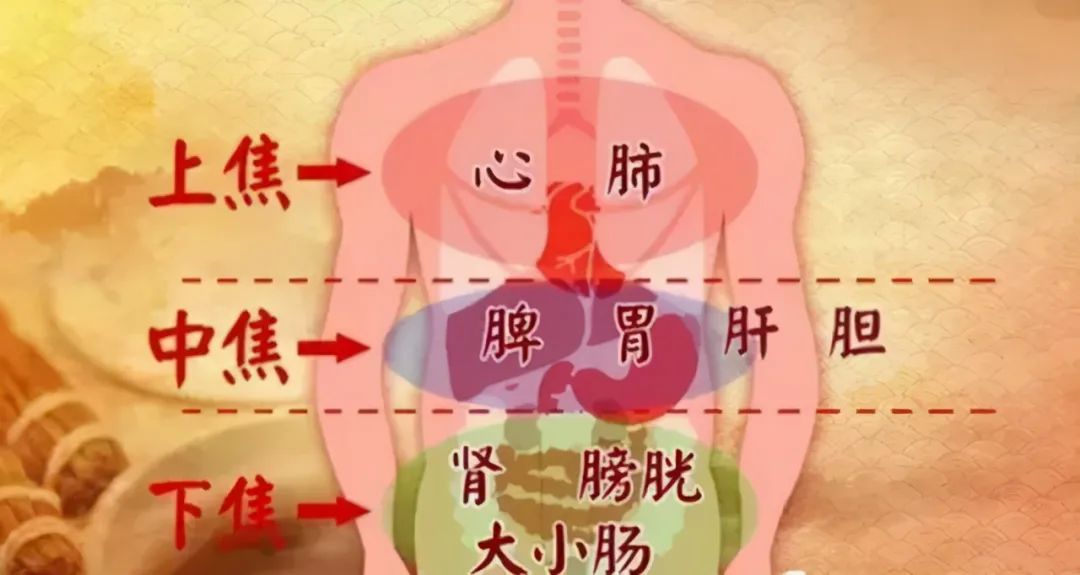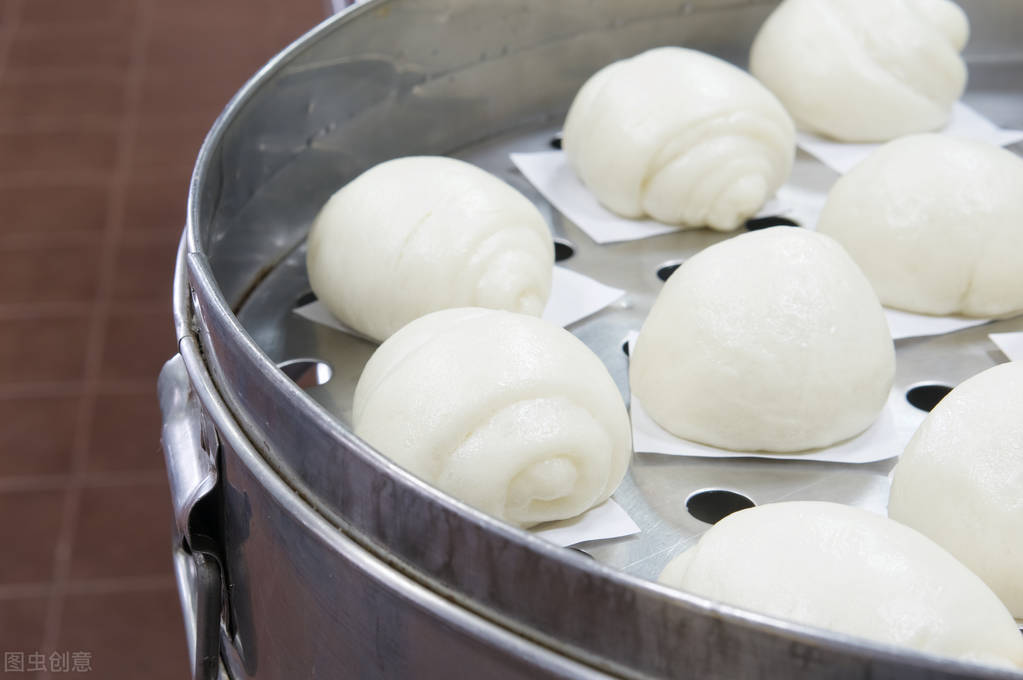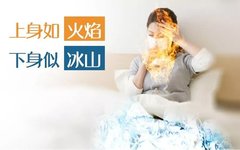Comprehensive Health Remediesto Promote Health Knowledge
Click below to follow for free↓↓↓
There is a group of people who are easily prone to “heat”, experiencing acne, oral ulcers, irritability, insomnia with vivid dreams… However, they feel that they are experiencing heat, yet have loose stools and clear, frequent urination, with a cold sensation below the waist. The entire body feels like a contradiction of ice and fire.

In fact, this is a common condition in Traditional Chinese Medicine (TCM) known as the mixed syndrome of cold and heat, where the body exhibits both cold and heat symptoms, with the upper body showing heat symptoms and the lower body showing cold symptoms, also referred to as “upper heat and lower cold”. This is one of the most common types of mixed cold-heat syndrome.
What Causes “Upper Heat and Lower Cold”?
It is well known that both nature and our bodies emphasize balance. When the yin-yang balance in the body is maintained, health is preserved. However, when this balance is disrupted, it leads to pathological states, and upper heat and lower cold is one such state of imbalance.
In traditional Chinese medicine, the body is divided into three parts: the upper jiao, middle jiao, and lower jiao. The upper jiao mainly refers to the heart and lungs, the middle jiao refers to the spleen and stomach, and the lower jiao refers to the kidneys. The yin and yang energies of each organ must rise and fall in an orderly manner to maintain balance.

If the yang energy in the kidneys is insufficient, the remaining yang energy will rise, leading to “floating yang rising”; or if liver qi stagnation transforms into fire, it can cause an excess of yang heat; or if heart fire cannot descend normally to balance kidney water, it can also lead to an imbalance of yin and yang, manifesting as upper heat and lower cold.
This is similar to steaming buns; if the fire in the stove is too low, the cold water in the pot cannot boil, and without steam rising, the buns in the steamer will dehydrate and crack due to lack of moisture. As stated in the “Treatise on the Origins and Symptoms of Diseases”: “When yang energy gathers above, there is upper heat; when yin energy gathers below, there is lower cold.” Ultimately, the key lies in the separation of yin and yang within the body, with one above and one below, yang above and yin below.

“Upper heat” often manifests as dizziness, headaches, facial acne, recurrent oral ulcers or persistent non-healing, nasal heat, profuse sweating, poor sleep, vivid dreams, easy awakening, tinnitus, palpitations, irritability, abdominal distension, chest tightness, and a red tongue.
“Lower cold” primarily manifests as loose or unformed stools, aversion to cold, clear and frequent urination, thin and clear vaginal discharge, dysmenorrhea, cold sensation in the lower abdomen, delayed menstruation, dark red blood with clots, and coldness below the waist.
Additionally, some patients may present with complex and contradictory symptoms, such as feeling hot in the heart and craving cold foods, but experiencing abdominal pain and discomfort after eating, or even having loose stools. Therefore, in actual treatment, it is essential to consider individual circumstances and treat according to the symptoms.
Clear the Upper, Warm the Lower, Nourish and Regulate Qi, Balance Cold and Heat!
The “Suwen: Great Discussion on the True Essentials” states: “Carefully observe the disease mechanism, each should be treated according to its nature; if present, seek it; if absent, do not seek it; if excessive, address it; if deficient, address it. First, ensure the five victories, smooth the blood and qi, allowing them to flow freely, and achieve harmony.” This indicates that for the syndrome of upper heat and lower cold, treatment should be divided into upper and lower; if there is heat in the upper jiao, cool it to clear; if there is cold in the middle and lower jiao, warm it to tonify; grasp the overall situation, clear the upper, warm the lower, nourish and regulate qi to balance cold and heat.
Clinically, Huanglian Decoction is often used for adjustment. The “Treatise on Cold Damage and Miscellaneous Diseases” records: “In cold damage, if there is heat in the chest, evil qi in the stomach, abdominal pain, and a desire to vomit, Huanglian Decoction is the main treatment for it.” This formula is often used to balance cold and heat and harmonize the stomach to descend counterflow.
This formula consists of Huanglian (Coptis), Gancao (Licorice), Zhi Ganjiang (Dried Ginger), Guizhi (Cinnamon Twig), Renshen (Ginseng, peeled), Banxia (Pinellia), and Dazao (Jujube). In this formula, Huanglian clears the heat in the upper jiao and chest; Guizhi disperses cold and promotes yang, facilitating the rise and fall; as noted in the “Treatise on Cold Damage and Pearl Collection”: “Using the bitter cold of Huanglian to treat upper heat; the sweet warmth of Guizhi to eliminate lower cold; when both upper and lower are balanced, the rise and fall can be restored.” Huanglian and Guizhi are the key herbs in this formula. Additionally, Zhi Ganjiang warms the middle and disperses cold; Banxia descends counterflow and harmonizes the stomach to stop vomiting; while Renshen, Zhi Gancao, and Dazao tonify and warm the qi, facilitating the movement of the body’s energy. This ensures smooth qi flow, harmonizing yin and yang, and eliminating cold and heat.
Modern medical research also indicates that Huanglian Decoction can be widely applied to various digestive system diseases such as chronic superficial gastritis, chronic atrophic gastritis, and bile reflux gastritis, showing good clinical efficacy.
It is important to note that the treatment of upper heat and lower cold requires both clearing heat and dispelling cold, thus one cannot solely use a single heat-clearing or tonifying herb. Moreover, the severity of cold and heat varies among individuals; if medication is used blindly, it can easily worsen the condition.
For example, Ms. Sun, a 42-year-old patient, often experiences coldness in her legs. Last summer, she was misled by exaggerated claims and underwent moxibustion for two months, resulting in recurrent belching, accompanied by palpitations and chest tightness. Before seeking treatment, she underwent blood tests, fasting blood sugar tests, 24-hour dynamic electrocardiograms, and gastroscopy at a nearby hospital, all of which showed no significant abnormalities. She reported experiencing “cold pain in the abdomen” and self-medicated with warming herbs such as Dingxiang (Clove), Fuzi (Aconite), Paojiang (Roasted Ginger), and Wuzhuyu (Evodia), which exacerbated her symptoms. She presented with a constant feeling of unease in her heart, a gloomy mood, and in the evening, she felt her hands and feet were hot, with dry and peeling lips, swollen upper lip, five hearts feeling hot, and abdominal cold pain when consuming cold drinks, with increased belching. She had restless nights and dry cough after falling asleep. Observing her tongue, it was pale and tender with a red tip.
Thus, the diagnosis was a mixed syndrome of cold and heat, and Huanglian Decoction was adjusted: adding Banxia, Huanglian, Jiao Zhizi (Fried Gardenia), Guizhi, Fuling (Poria), Zhi Gancao, Dazao, Gualoupi (Trichosanthes Peel), Zhihua (Bitter Orange), Jiegeng (Platycodon), Xianhecao (Agrimonia), Xingren (Apricot Kernel), Baiziren (Platycladus Seed), Suanzaoren (Sour Jujube Seed), Sheng Longgu (Raw Dragon Bone), Sheng Muli (Raw Oyster Shell), and Houpu (Magnolia Bark). Seven doses were prepared, decocted in water, taken once daily, divided into morning and evening doses.
In this case, the primary treatment was to balance cold and heat using Huanglian Decoction, harmonizing the stomach and descending counterflow. Additional use of Zhizi to clear heat from the chest; Houpu to harmonize the stomach and descend counterflow, balancing cold and heat, harmonizing the middle jiao, restoring normal rise and fall of yin and yang, and resolving pain and belching. Furthermore, Fuling, Gualoupi, Zhihua, Jiegeng, and Xingren were used to regulate qi and expand the chest, promoting the yang energy in the chest. Suanzaoren, Baiziren, Sheng Longgu, and Xianhecao were used to calm the spirit and settle palpitations, gathering floating yang. Zhi Gancao and Dazao were used to protect the stomach qi and harmonize the various herbs.
Health knowledge is promoted through inspirational quotes.
Click below to follow for free↓↓↓
Editor shares good articles with friends
1.Traditional Chinese Medicine: What Does It Mean When There Are Cracks on the Tongue? A Formula to Solve Tongue Cracks
2. Why Does My Stomach Gurgle, and Why Do I Fart, Have Diarrhea, and Unformed Stools? TCM Has Wonderful Solutions!
3.So Precious! Over 800 Remedies, There Is No Illness That Cannot Be Treated, Save for Future Use!
4.Understanding Each Chinese Herbal Resource Compilation
Like is a form of encouragement Share to spread joy

